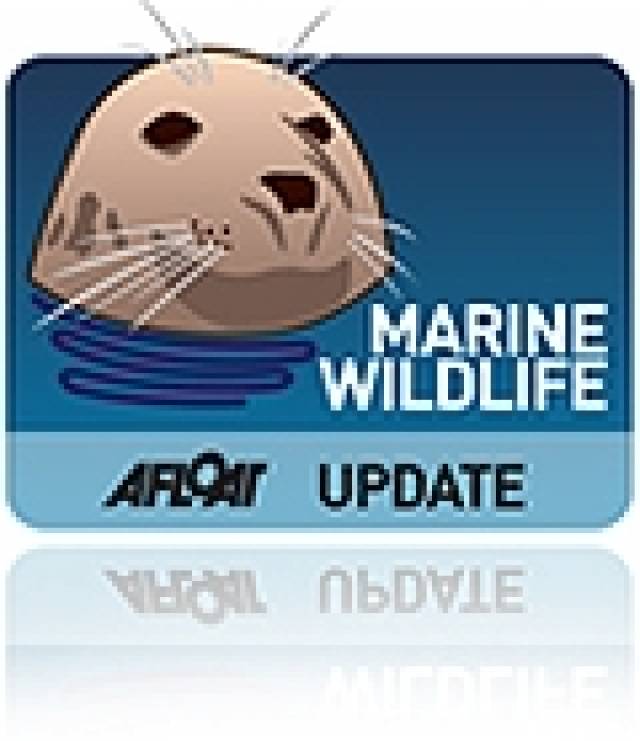#shark – October 2012 marks an important milestone for the Marine Institute and Irish Elasmobranch Group's porbeagle shark tagging project as five more porbeagles have been tagged off the Donegal coast by the project's expert shark angler, Peter McAuley. The project, which has been ongoing since 2008, is now offering the public an opportunity to track the movements of two sharks in near real time on the Irish Elasmobranch Group's website, www.irishelasmobranchgroup.org.
Five sharks were tagged with conventional pop-up satellite tags, which will record the sharks' location and depth, over a nine month period. After this, the tags are programmed to detach, float to the surface and transmit the data to orbiting satellites. In addition to the pop-up tags, two of the tagged sharks were fitted with Smart Position or Temperature Transmitting (SPOT) tags. These tags are fitted on to the dorsal fin of the sharks and each time the fin breaks the water's surface, a position is transmitted to an orbiting satellite. This allows the sharks to be tracked in near real time and it is believed that this is the first time these tags have ever been fitted on porbeagles. The tags should function for at least the next year, providing a completely new insight into the behaviour of these sharks.
Porbeagle sharks, which are a very timid species of shark, can grow to over three metres and 250 kilograms, and are one of the largest predatory sharks in Irish waters, feeding on fish. Once the target of intensive commercial fishing, the porbeagle shark is now considered to be critically endangered in the northeast Atlantic by the International Union for Conservation of Nature (IUCN). Since 2010, fishing for porbeagles has been banned in European waters; however, as little is known about its biology or ecology, such effective conservation measures are difficult to implement. The research team, comprising Dr. Ryan Saunders, Dr. Maurice Clarke and Dr. Edward Farrell, are attempting to understand the biology and ecology of the porbeagle shark by using advanced satellite linked tagging techniques. The project has already yielded some very important results, the most notable of which was the tagging of one shark, a juvenile male, that migrated over 2400 km from Ireland to Madeira. The movement of porbeagles from European waters to African waters was previously unknown and it has important implications for the conservation and management of the species.
In 2011 the research team was successful in attaining funding from both the Swiss based Save Our Seas Foundation and the German based Naturschutzbund Deutschland (NABU) to continue the project and to build on the important findings already made. Given the large scale movements of porbeagles, collaborations were also developed with the Centre for Environment, Fisheries and Aquaculture Science (CEFAS) in the UK and with the French Research Institute for Exploitation of the Sea (IFREMER).
These five newly tagged sharks also need names so a competition is being organised in collaboration with Galway Atlantaquaria which will give school children the chance to name these five sharks. Details about the competition are available on the Irish Elasmobranch Group website.
































































